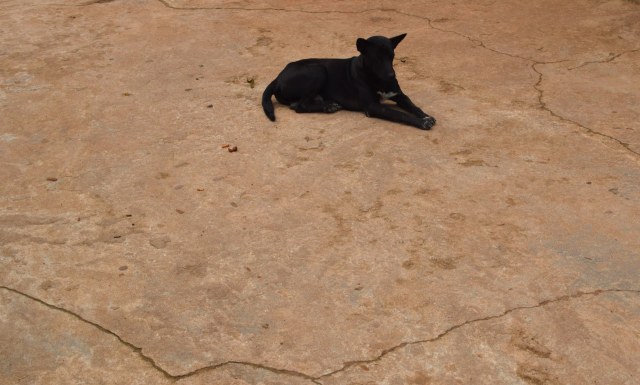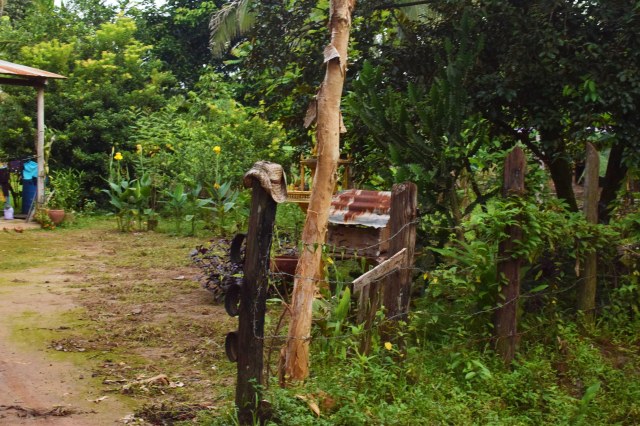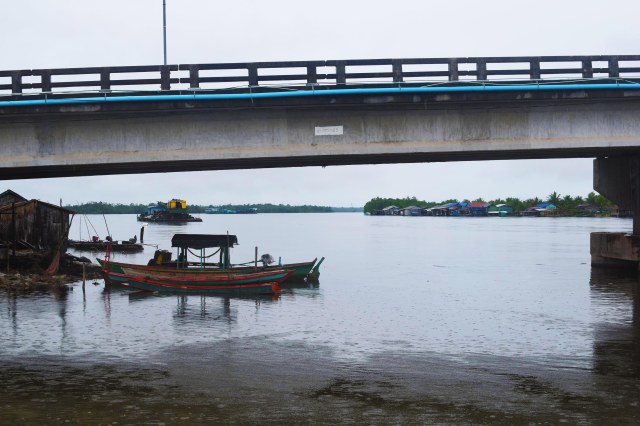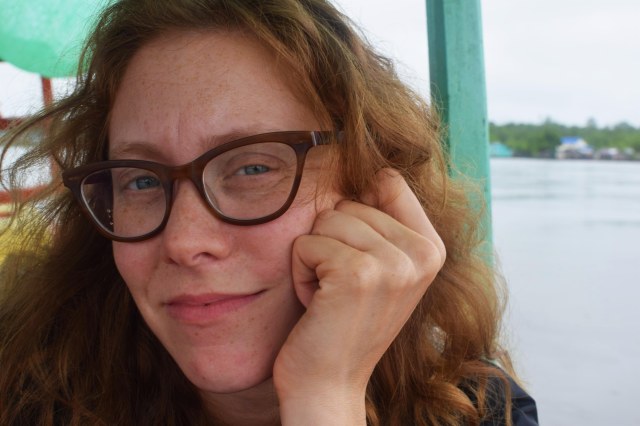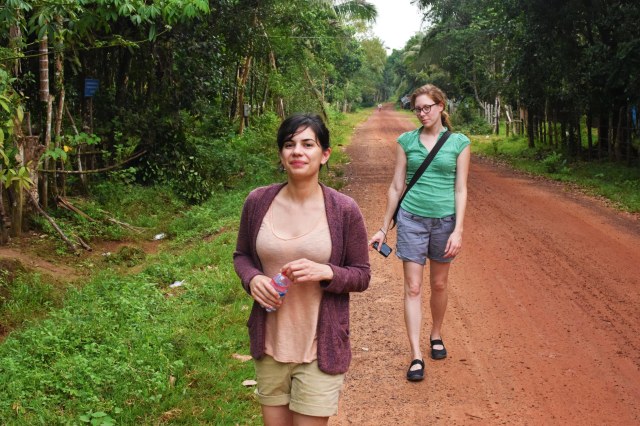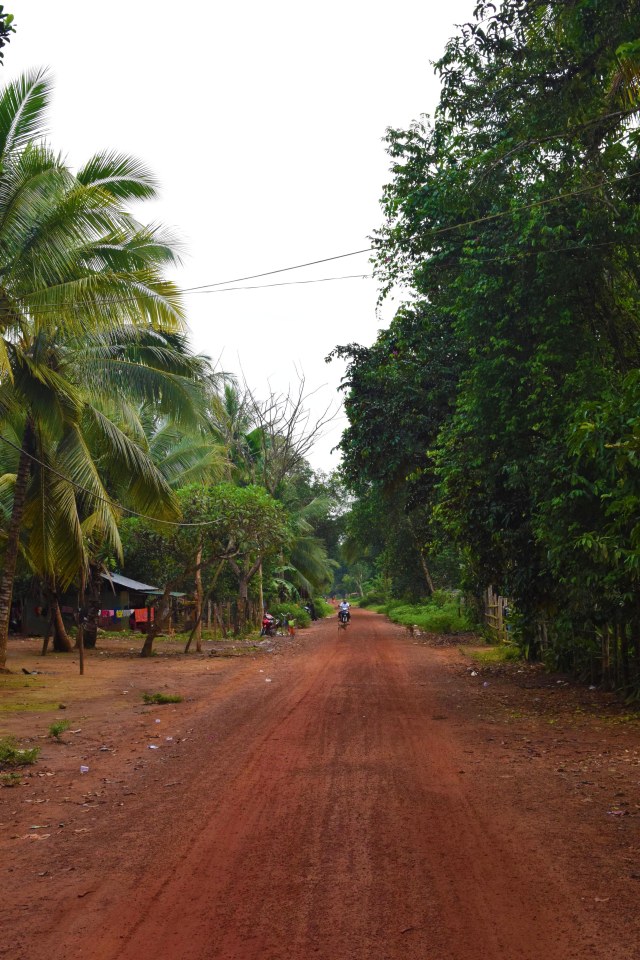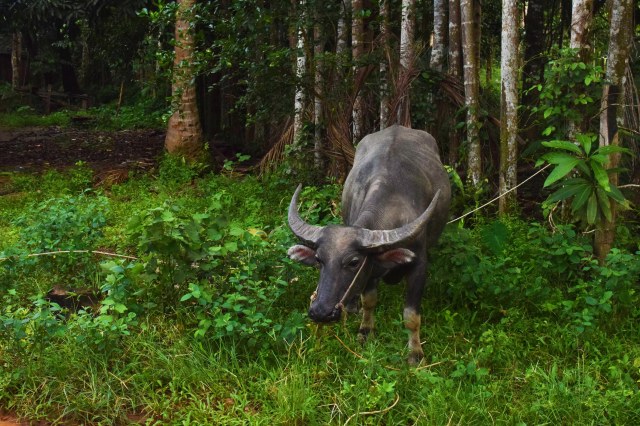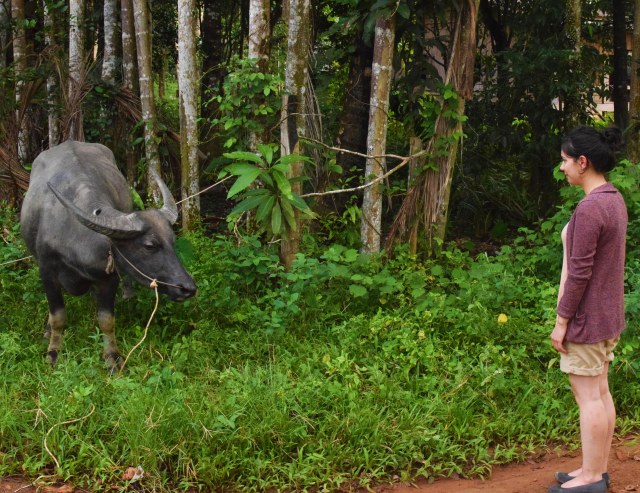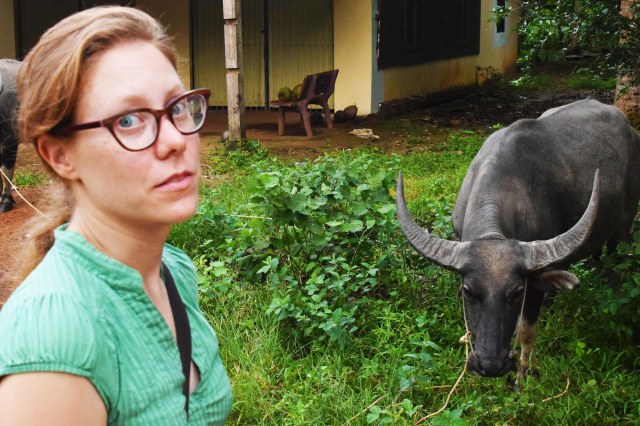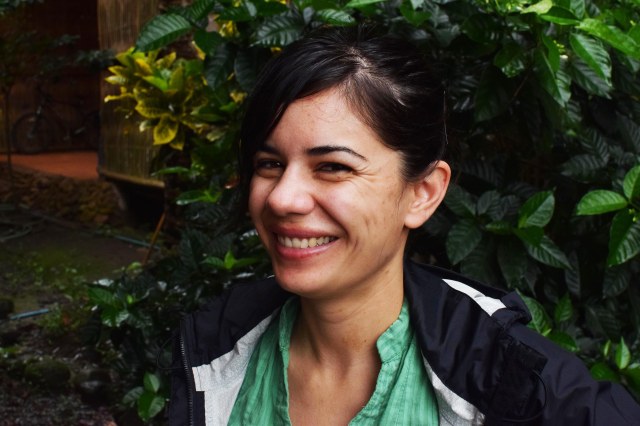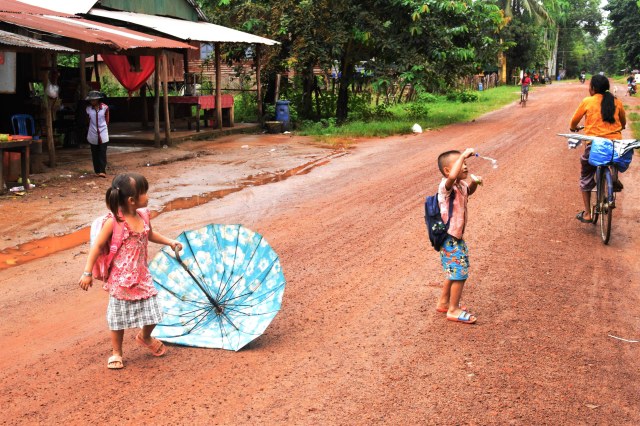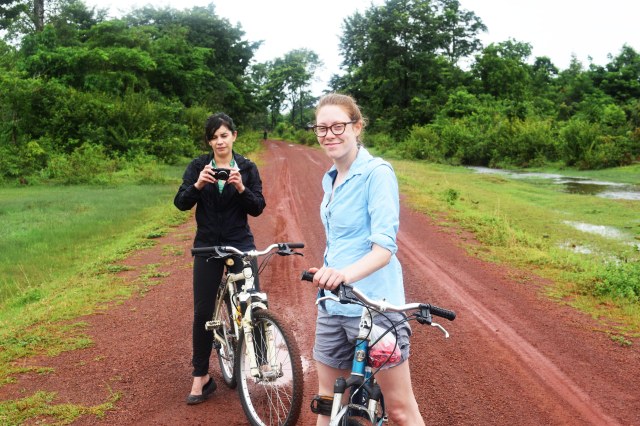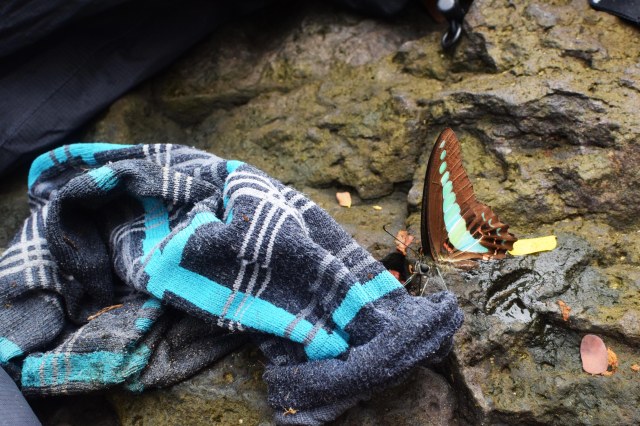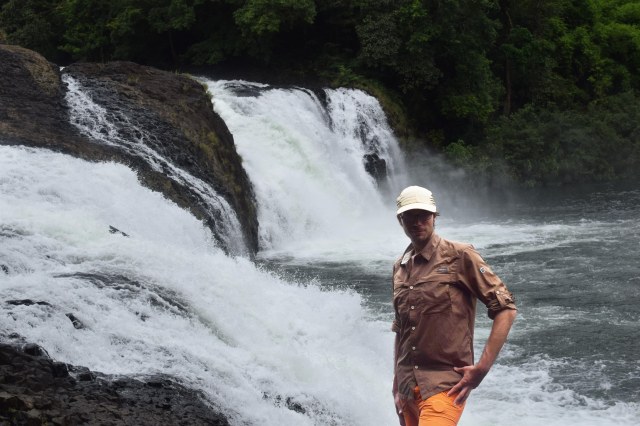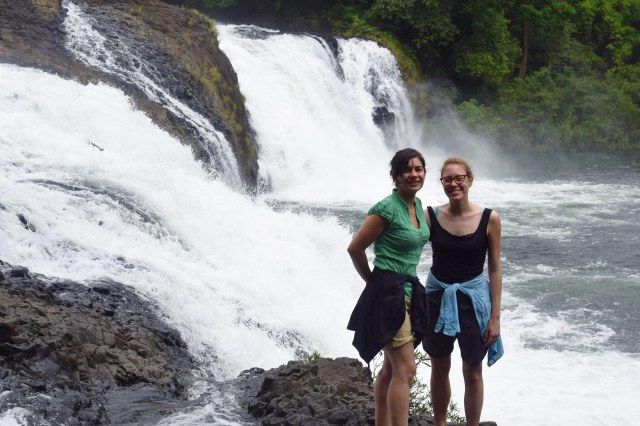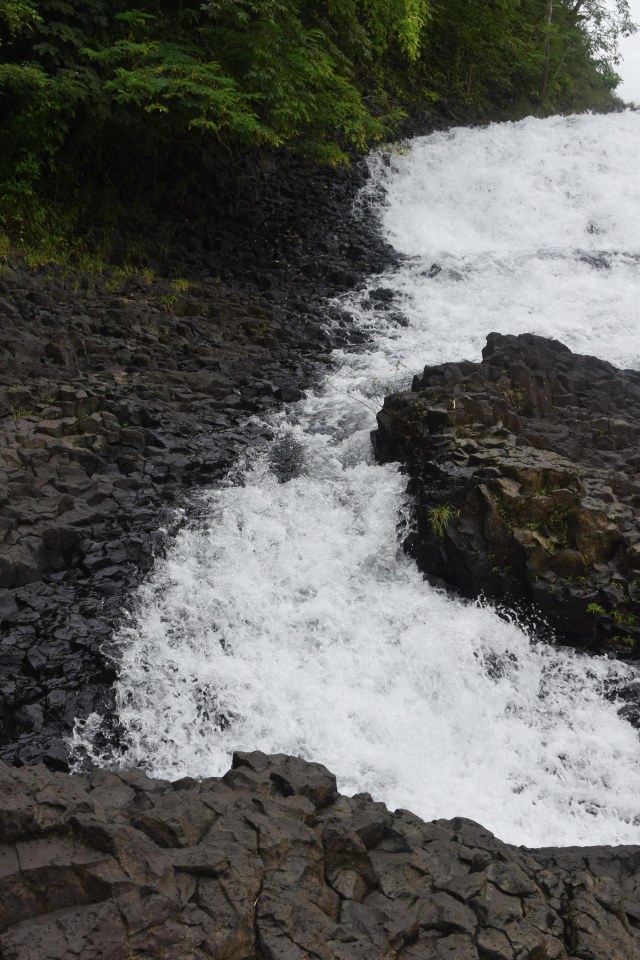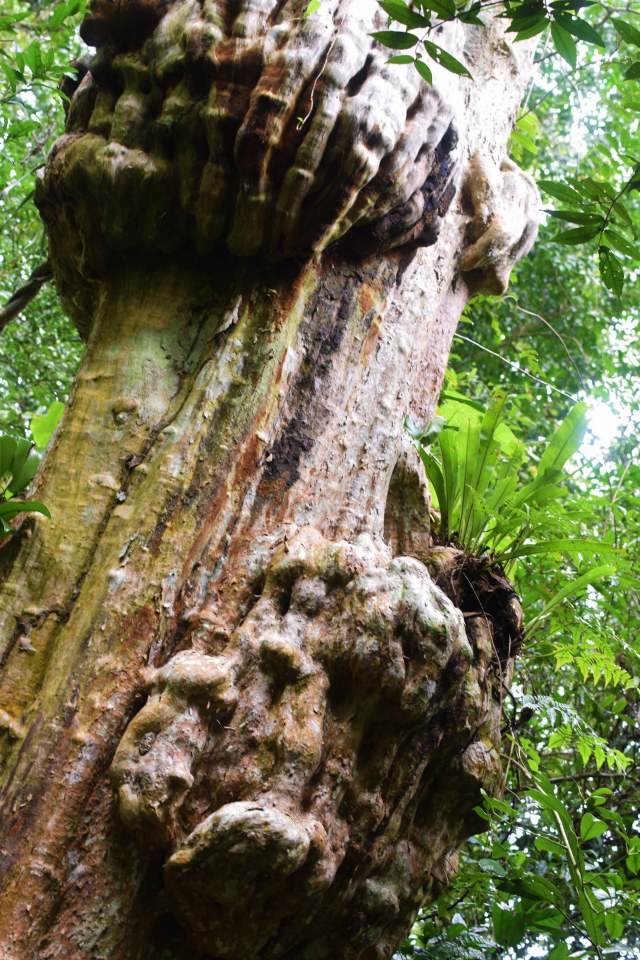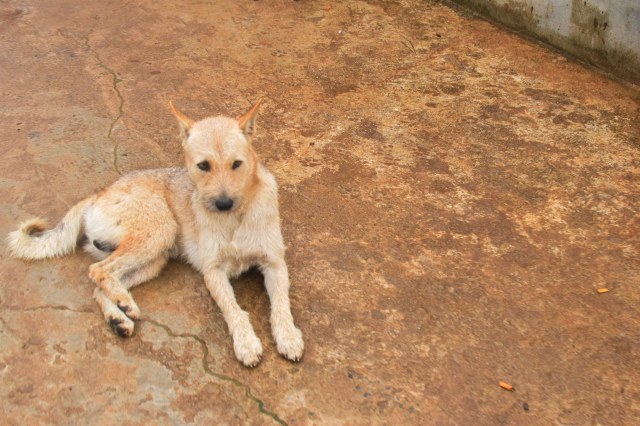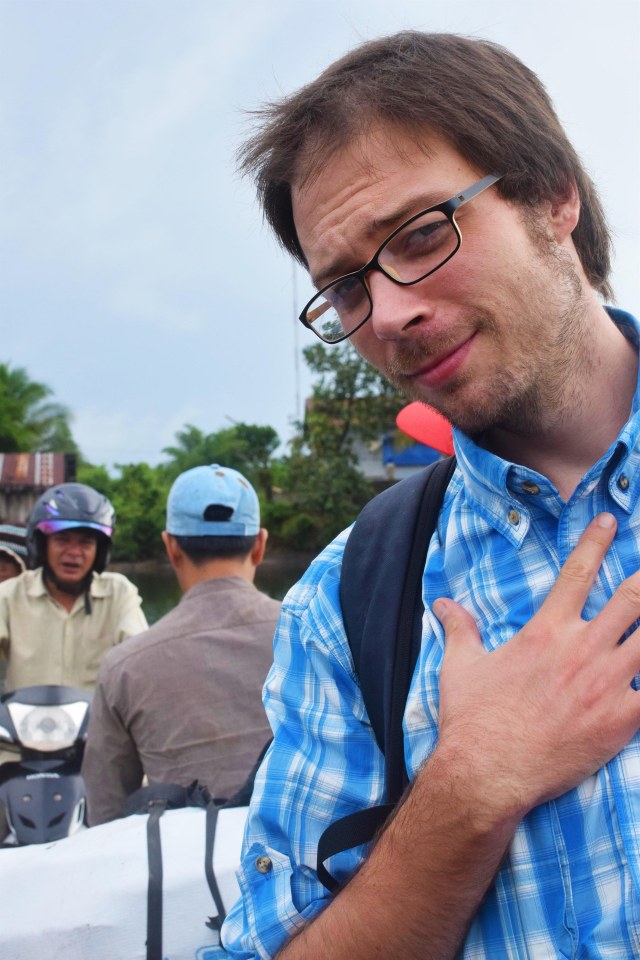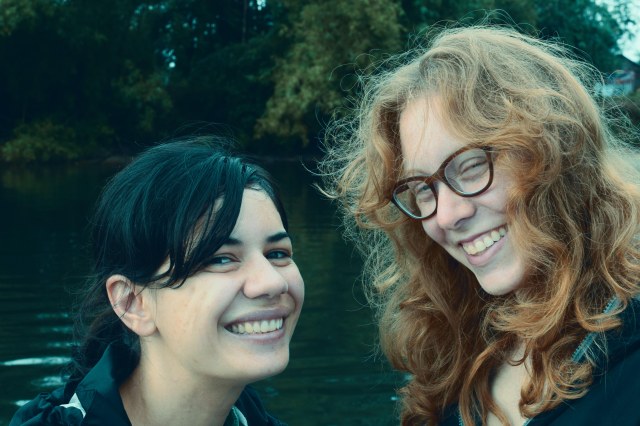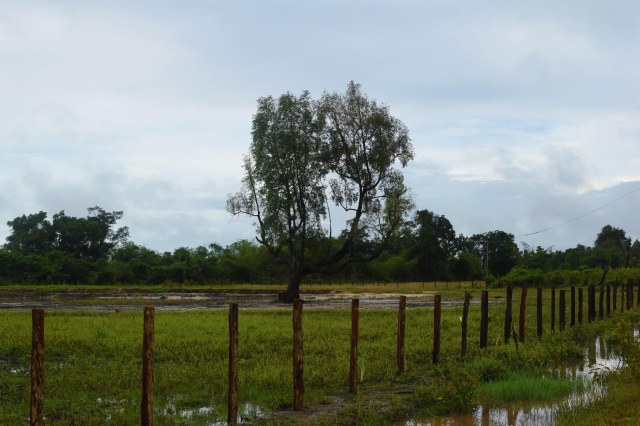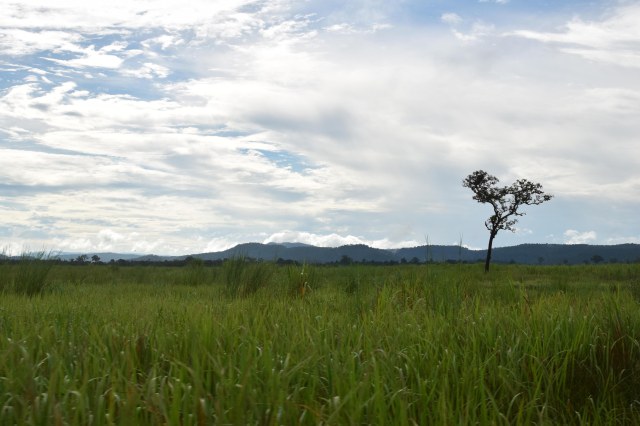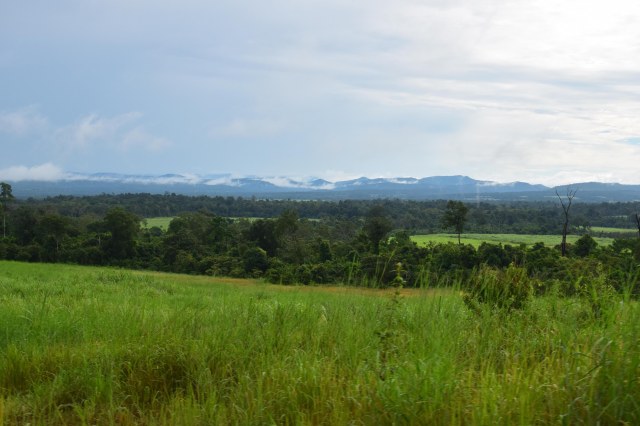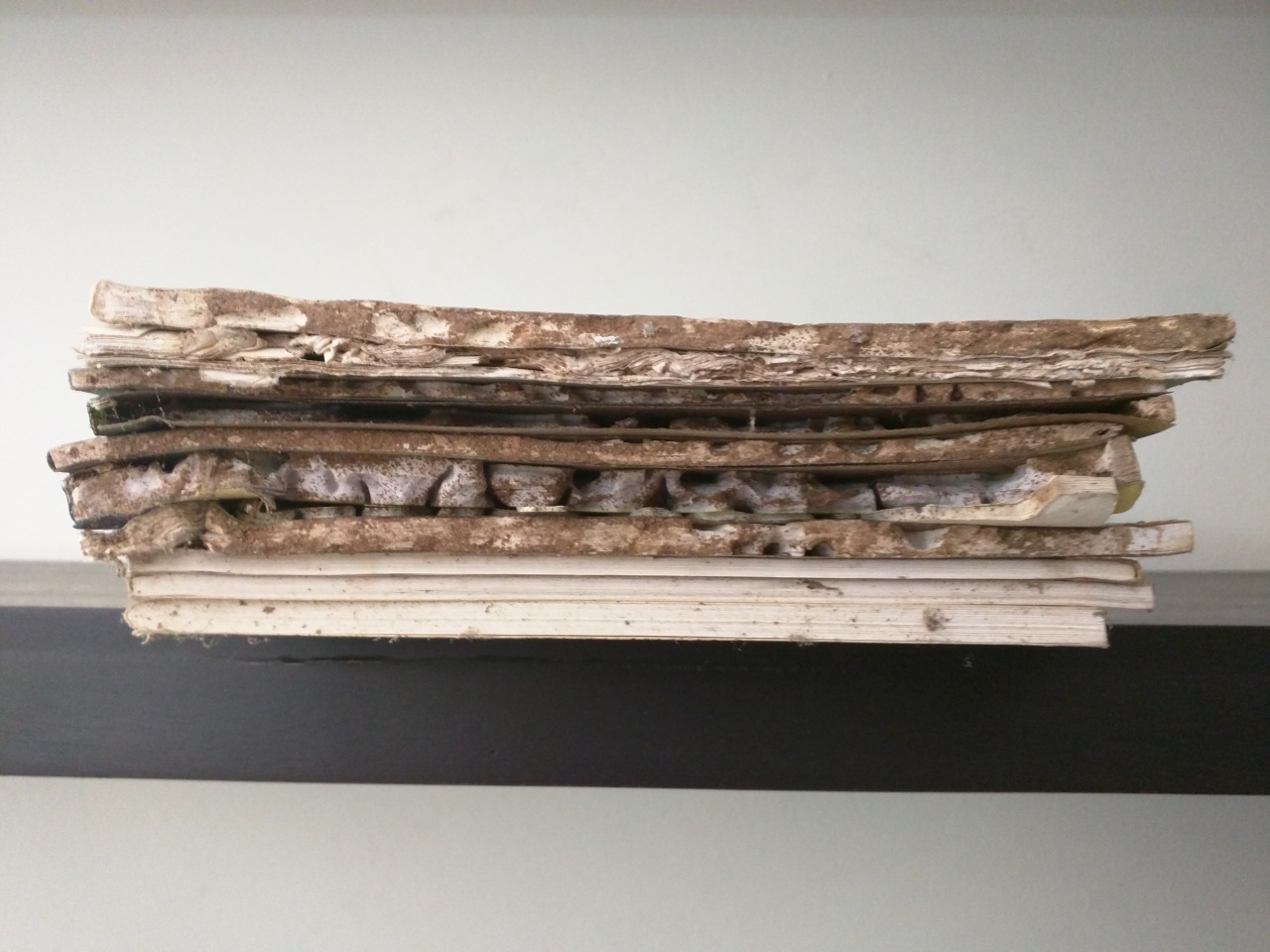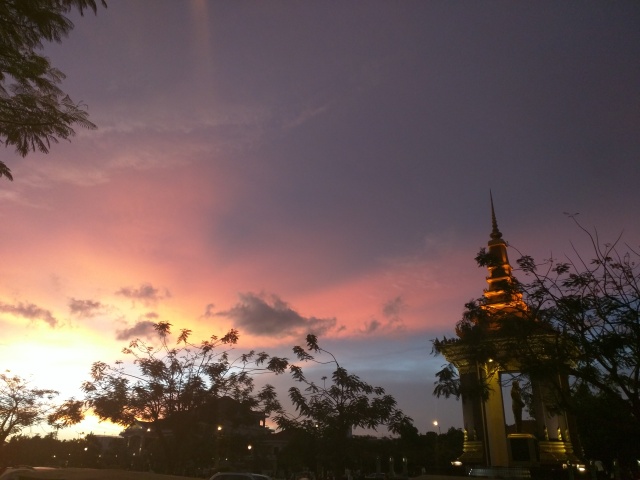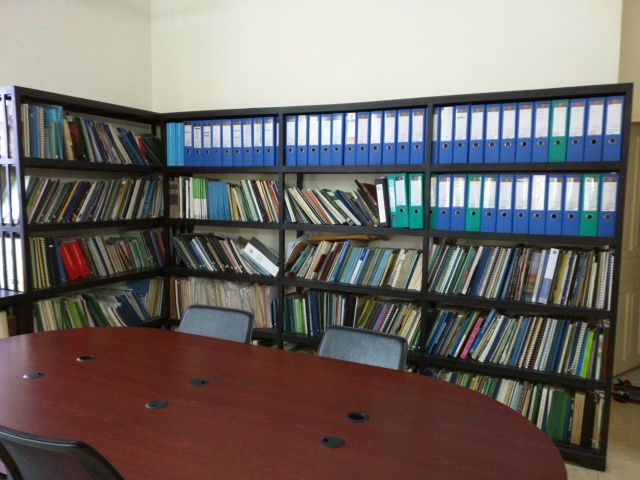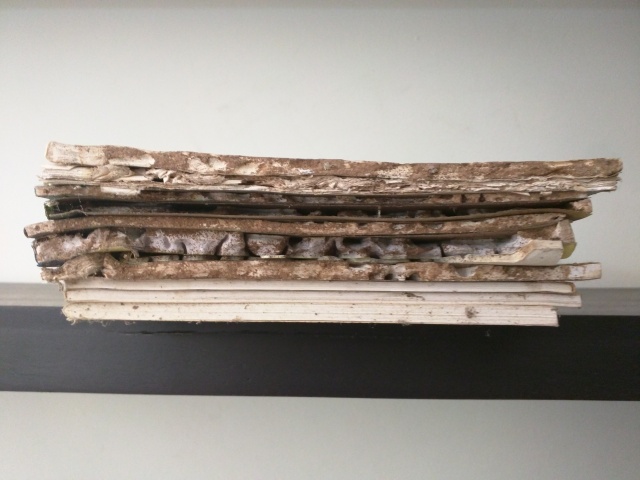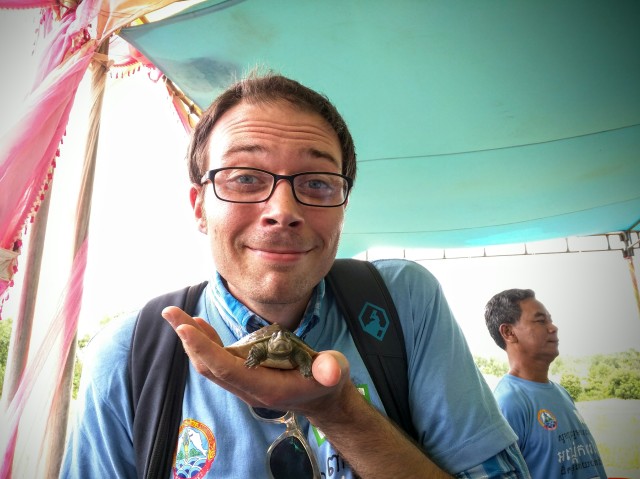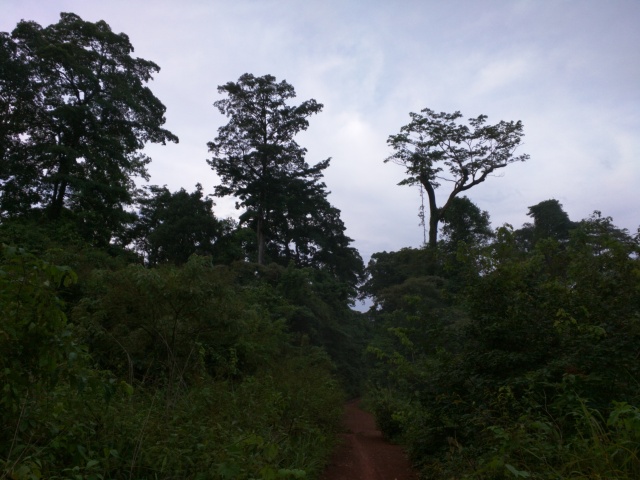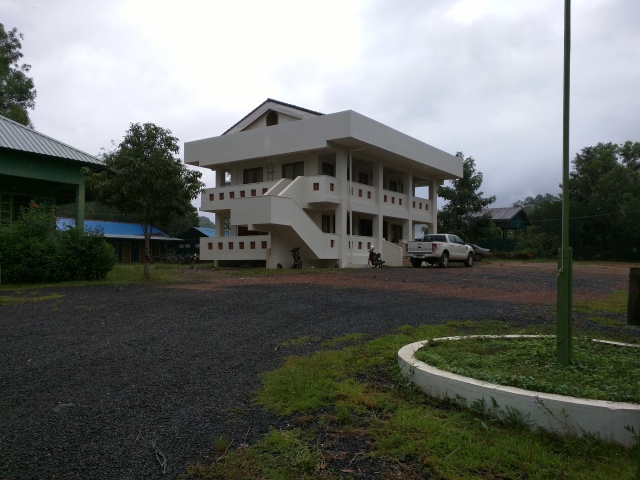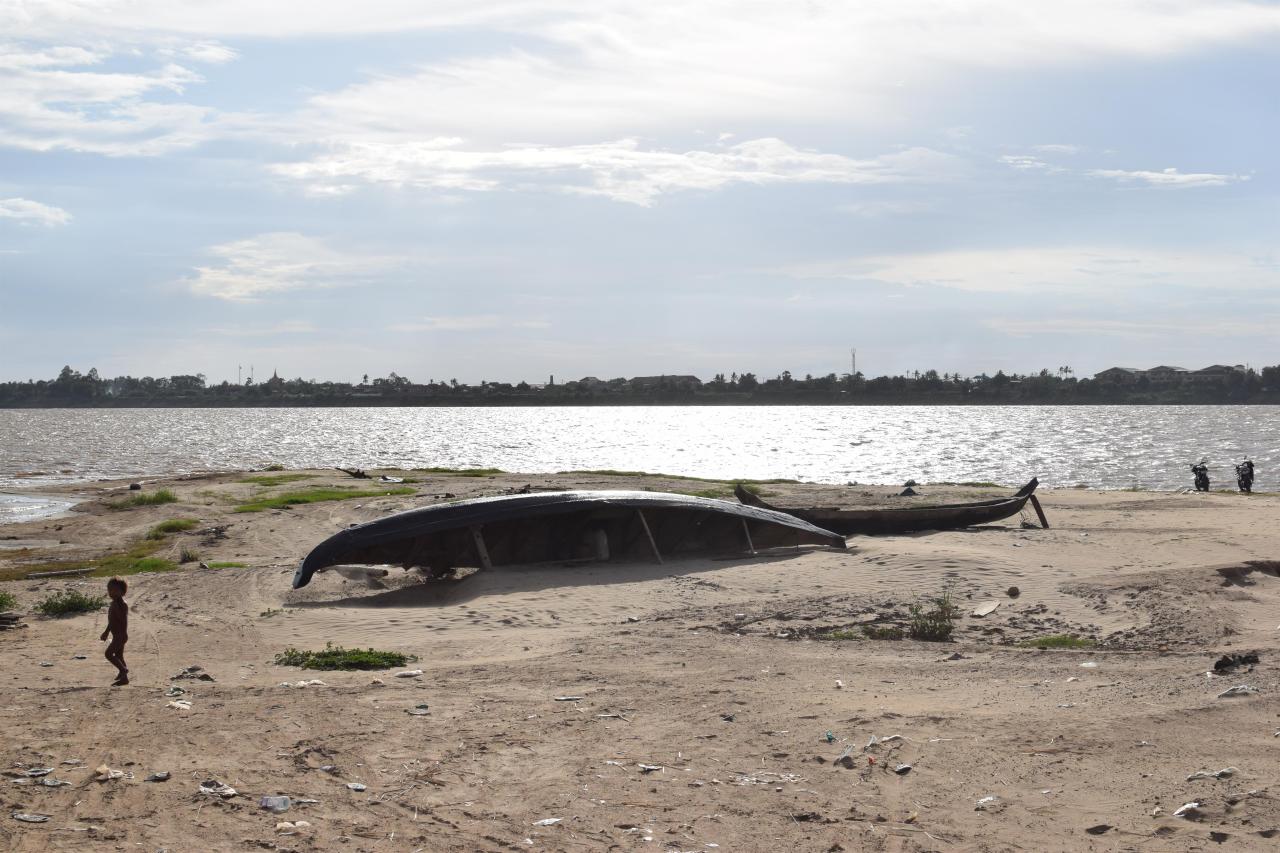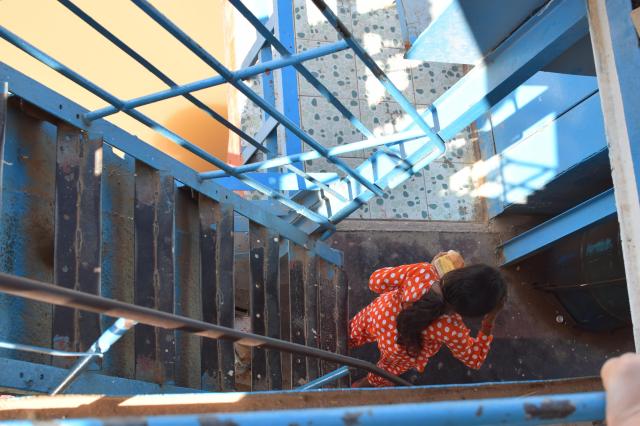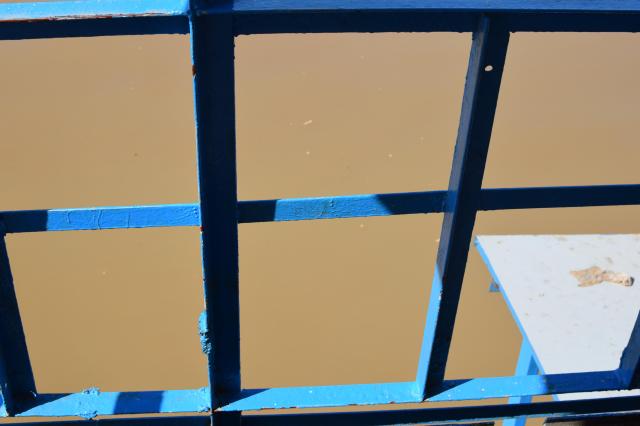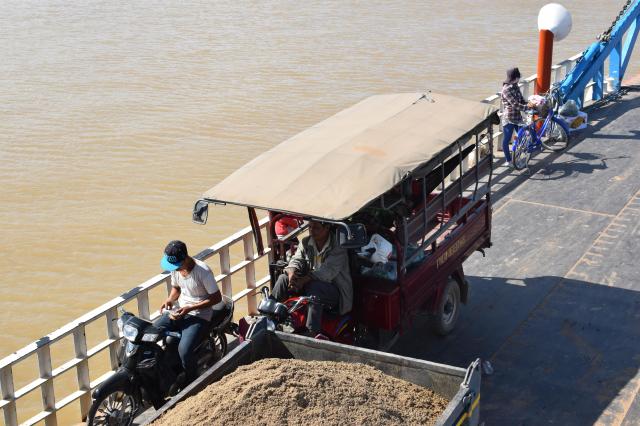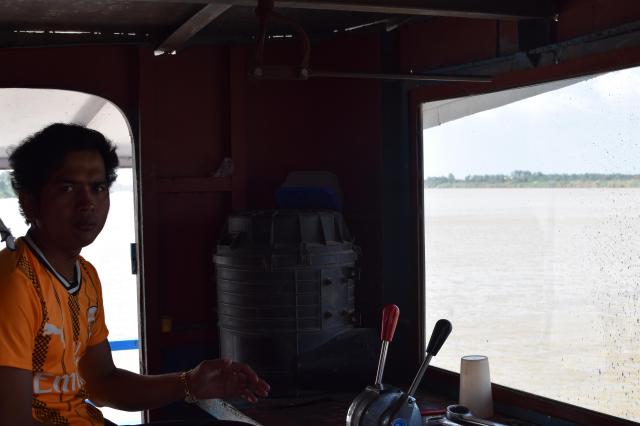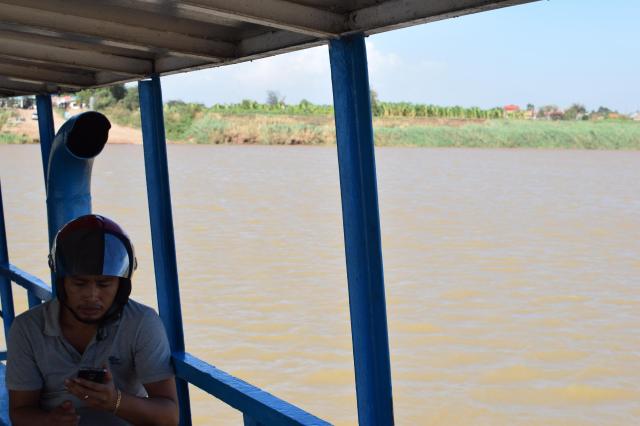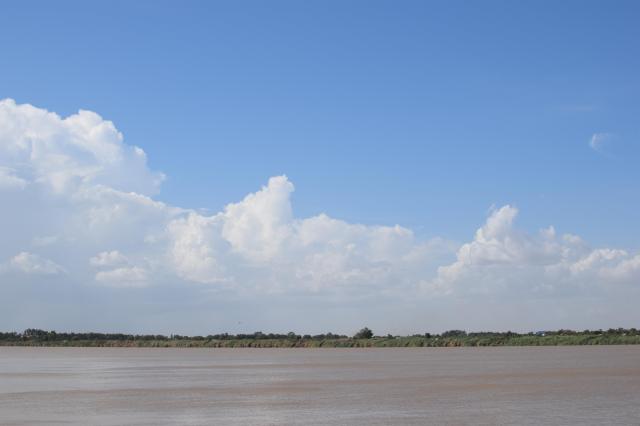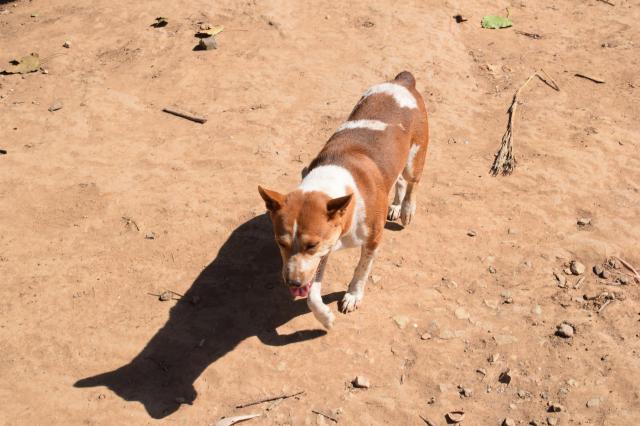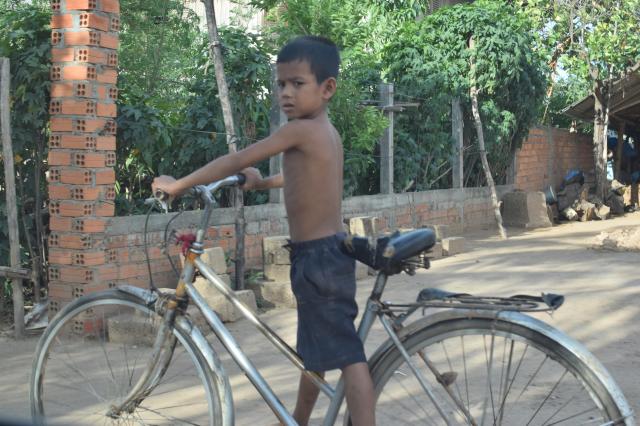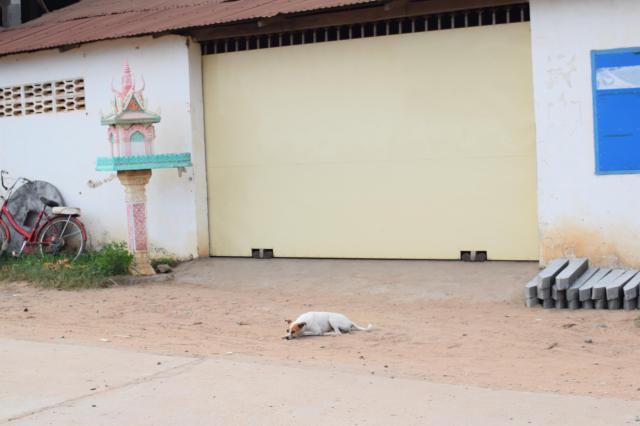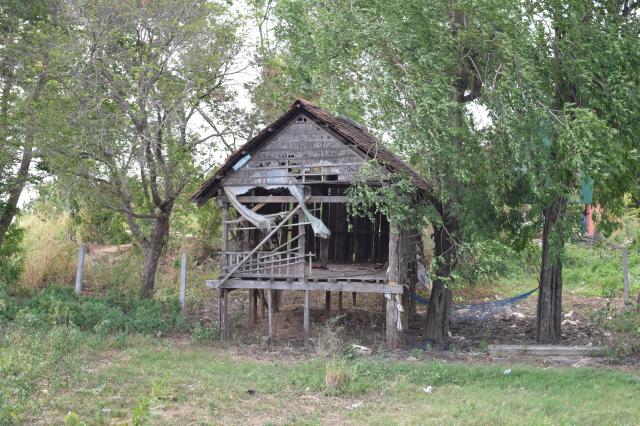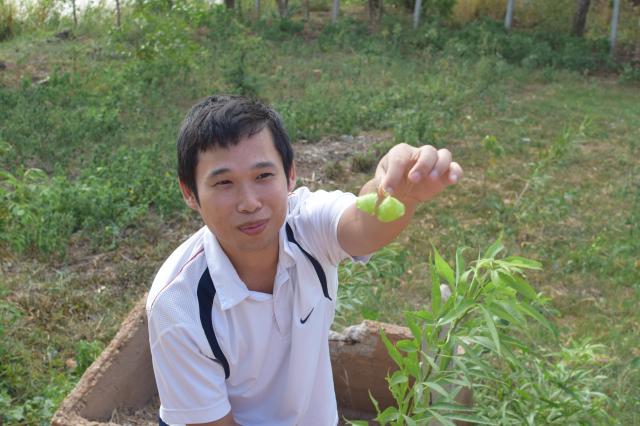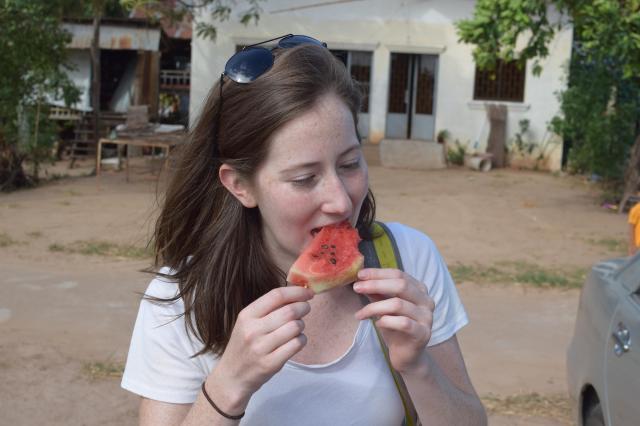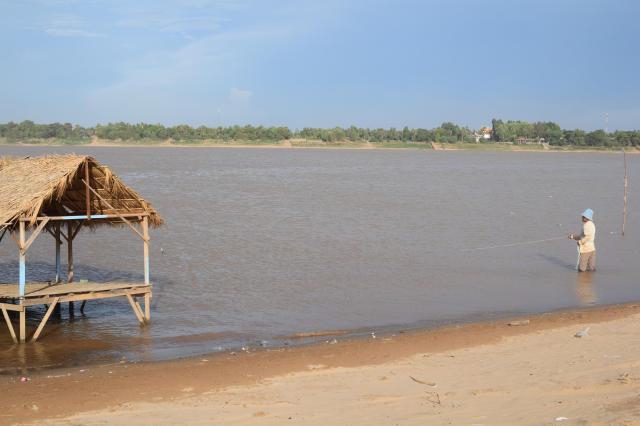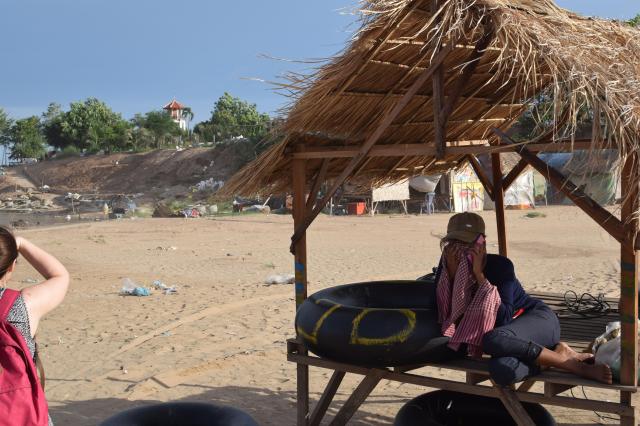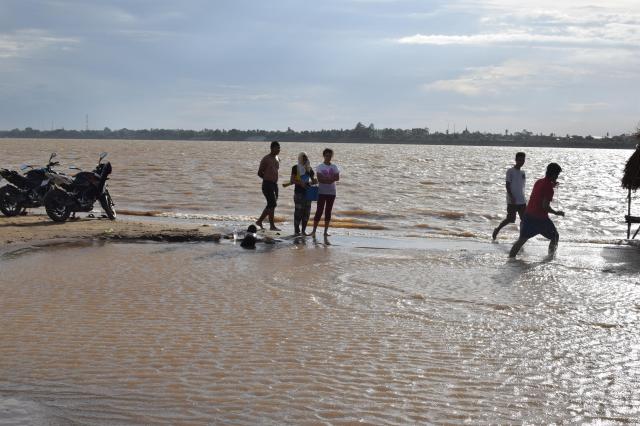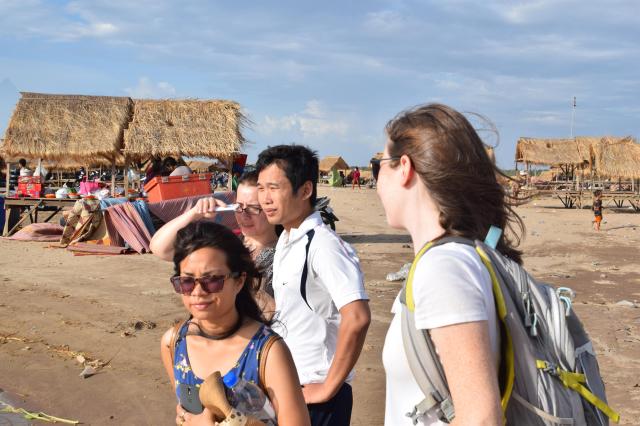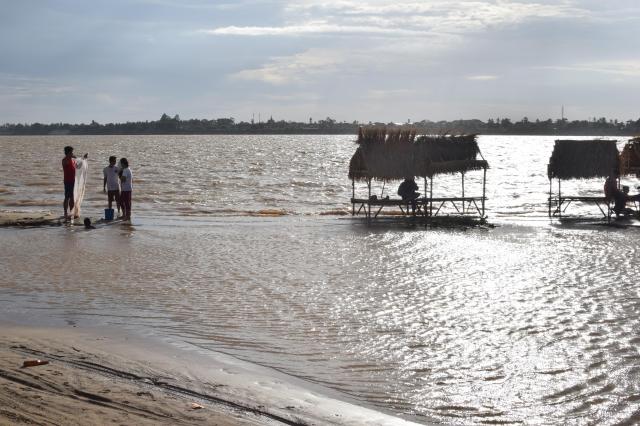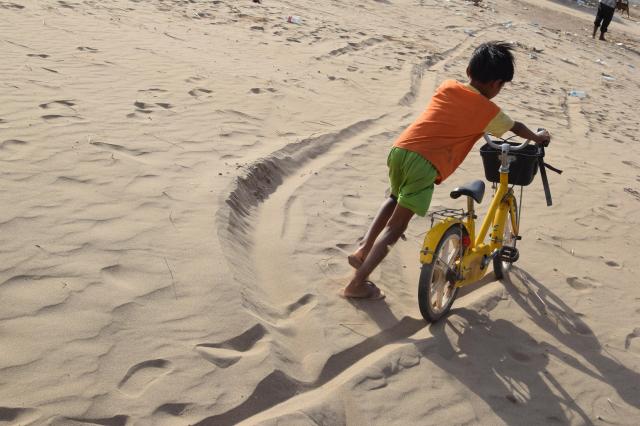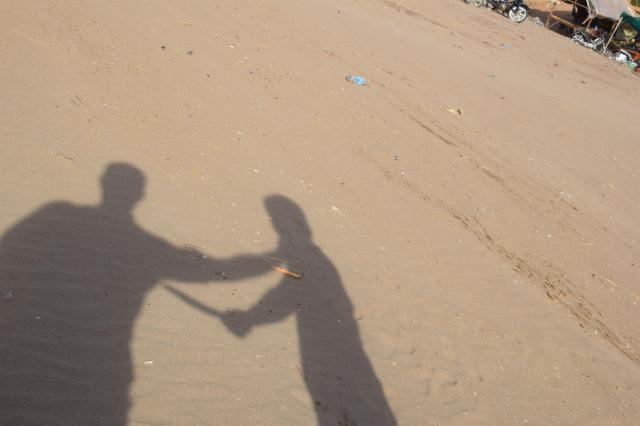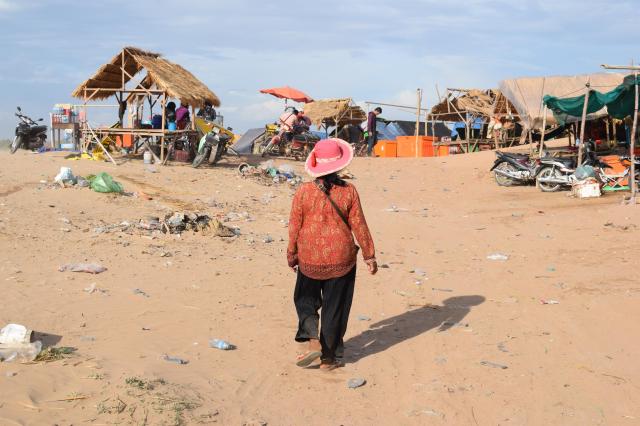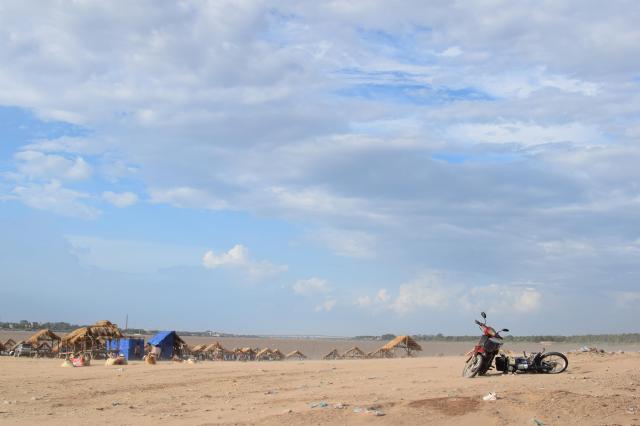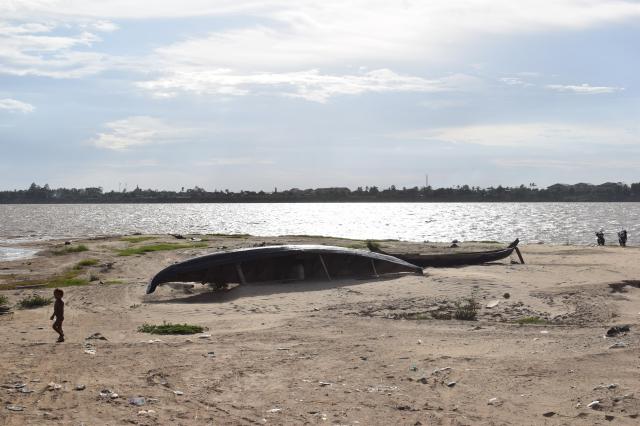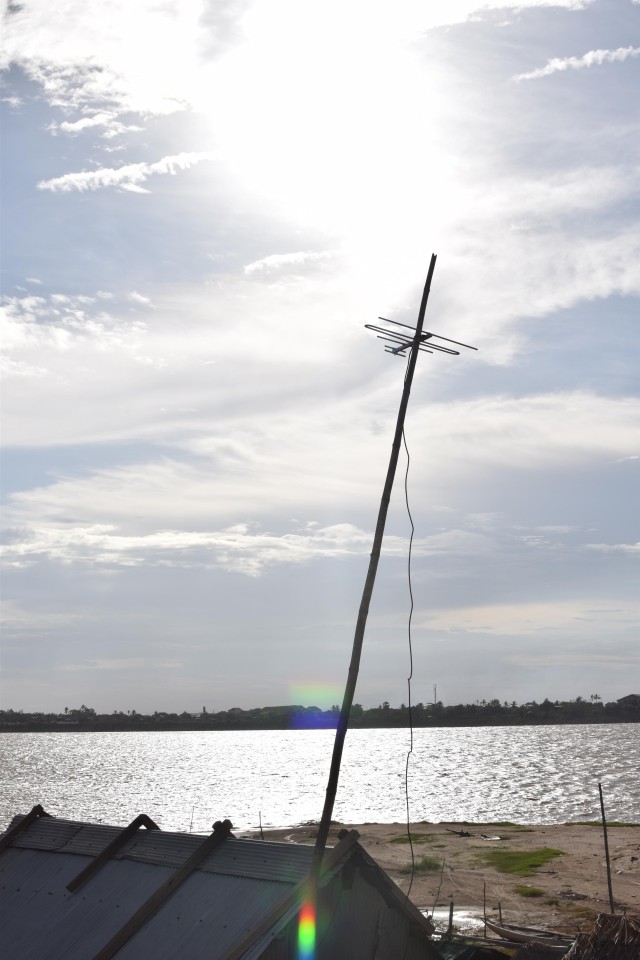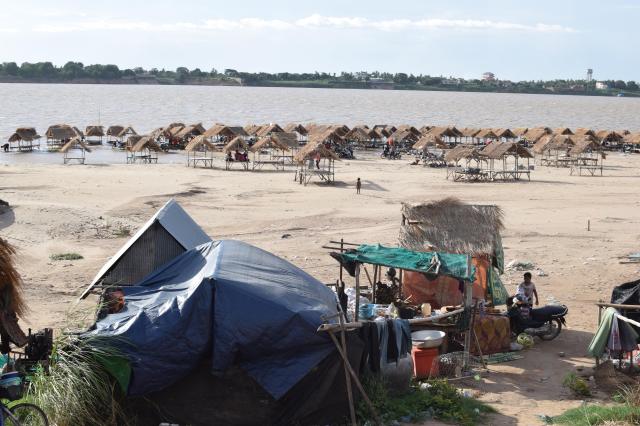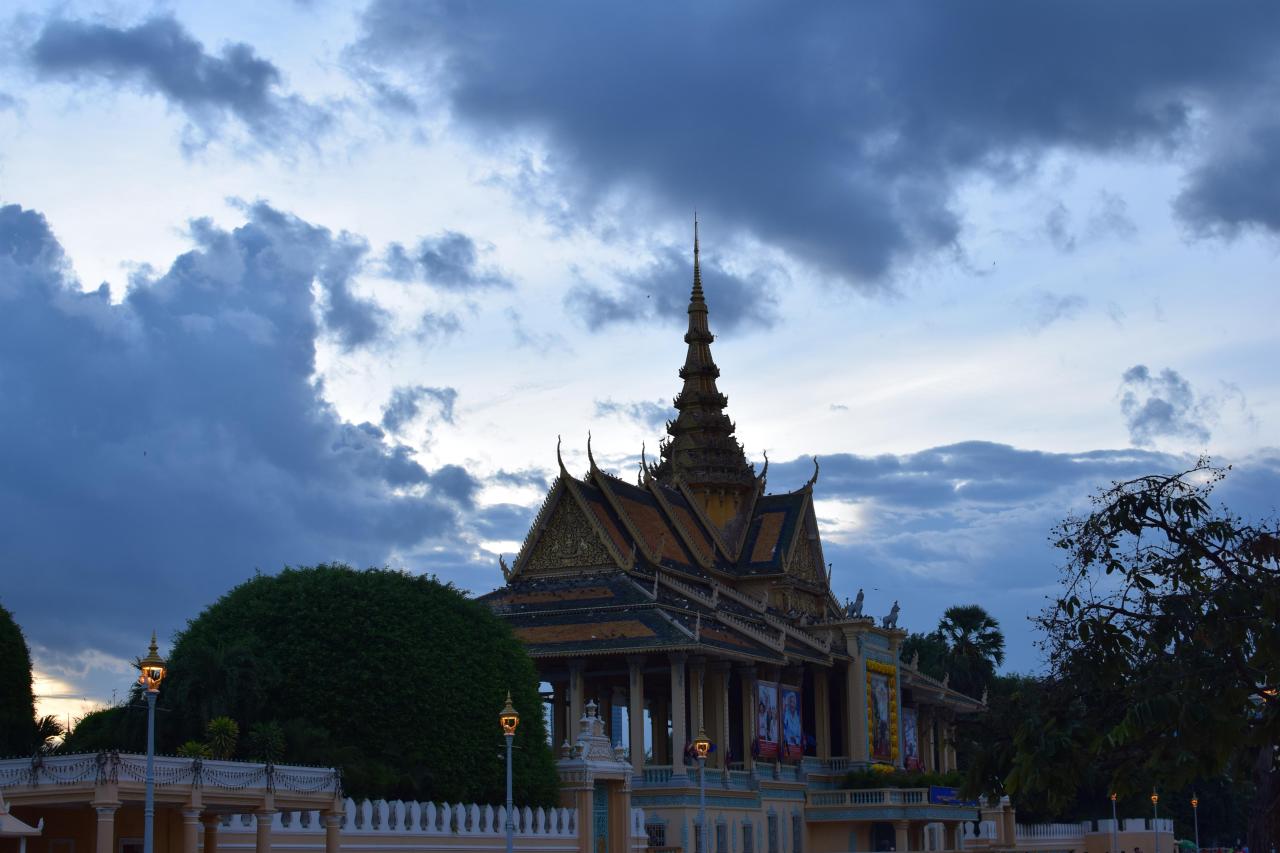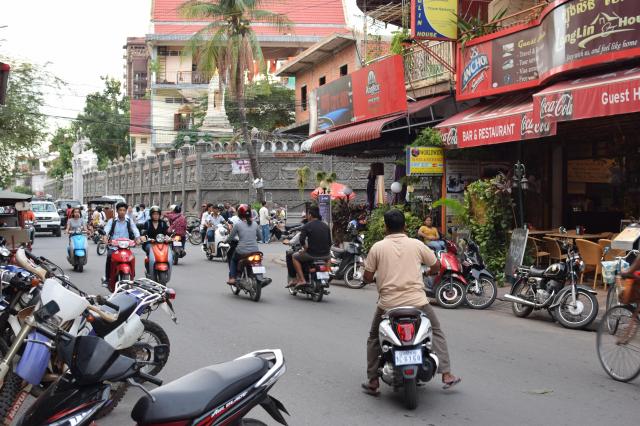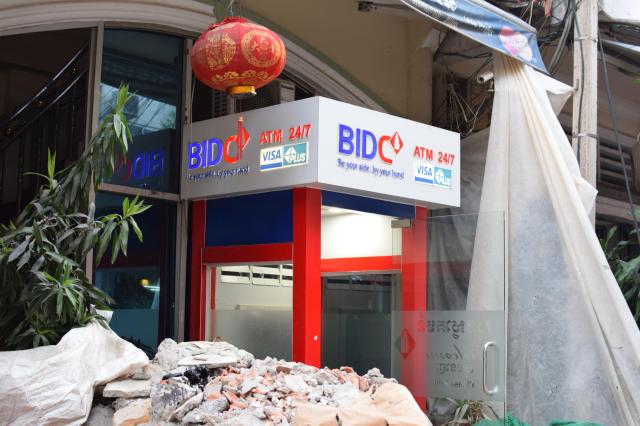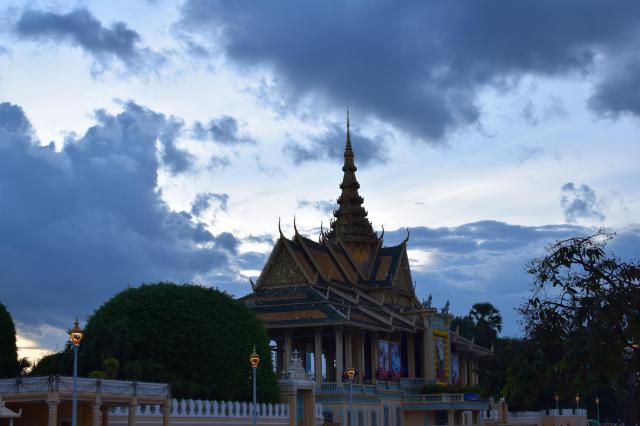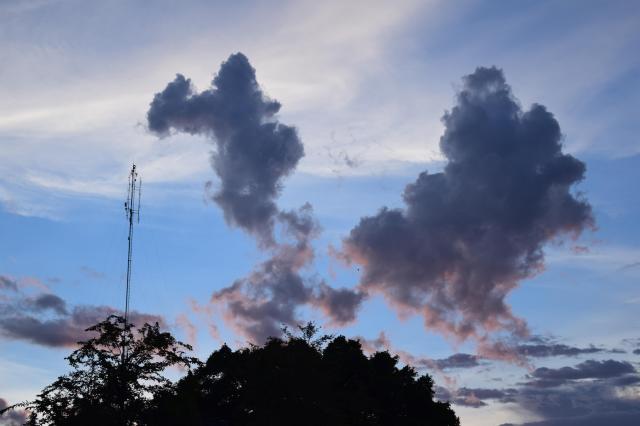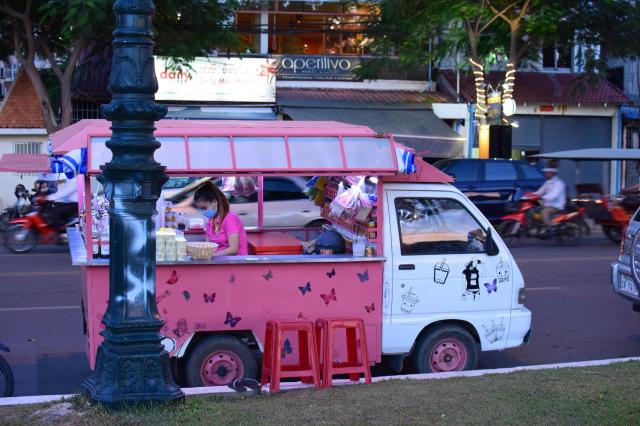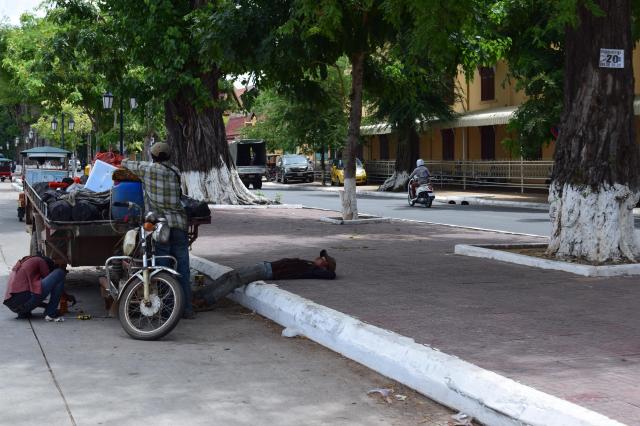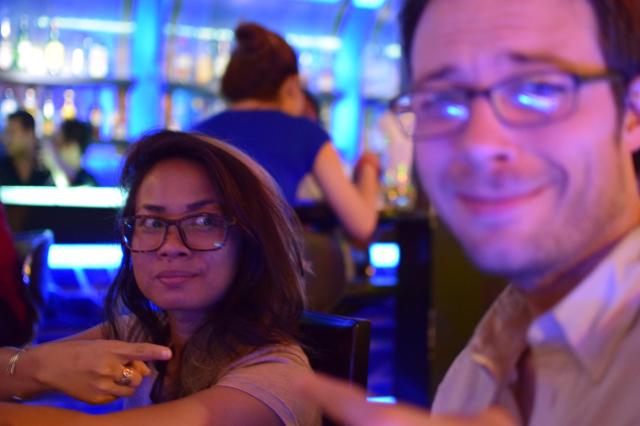Here is the first in what I hope is a series of posts on my time in Cambodia. I will be writing a final poem and some additional comments tomorrow, during my last day in the Kingdom of Wonder.
Clutching the bag
like the next corner
could be your next life.
Final days, final hours, final minutes, final moments. I’ve been in Cambodia for around eight and a half months and tomorrow at midnight I return back to the United States of America, from whence I came, from the last life I knew. And yet it will never be the last life, the same life, as Cambodia has provided so much insight, expanded me perspective gradually, fundamentally, impeccably. I will miss Cambodia and what it has taught me and what I have found as a new home, a new lifestyle, a new place of wonder in a Kingdom of Wonder.
I ache thinking about the rising sun
and how it will never be as hot
my skin will never shimmer this way.
I will miss the people most of all. The fantastic people who are all doing amazing things here. I will miss the writers, the teachers, the librarians, the artists, the psychologists, the developers, the dancers, and so on and so on. I will miss the opportunity to so easily look into the minds and worlds of so many different types of people. Through work, through volunteering, through a commitment to creativity, I have seen in my life a place filled with so much life, so much purpose, so much inquiry. Contrastingly different from previous states of nihilism and the annals of the voids of pretention I knew before, Cambodia has given me a glimmer of insight into a space where the have-nots have so much to find, care for, and explore.
Kick, push, kick, push.
The first time navigating the world of motos
on a single speed bicycle.
Risks. I will miss the risks. I will miss swerving out into traffic and nearly getting run over by the motorbikes and the SUVs and all manner of other crazed traffic that dominates the landscape. Risks. I will miss booking my schedule full with exhausting, potentially-heartbreaking meetings, where my experience and inexperience is not enough to find the answers to the problems I encounter. I will miss exploring and trying anyway. I will miss going into situations without the proper foundational knowledge and taking the risk that I can still make impact.
Judging from that pothole,
there has recently been a lot of rain,
and yet the sky is clear.
Cambodia might as well be labeled “land of uncertainty.” You can find surprises anywhere, but there is a particularly staggering degree of uncertainty and discovery here that never gets old, that continues to astound no matter where you are. I will miss it. I will miss it in its beautiful poetry. This poetic world we float through, new smells, new fumes, incredible vibrations and incredible patterns of images. Every moment, whether I was in the comfort of my room, enjoying conversations over beers or coffee with friends, or out traveling the dusty streets, I found myself being delightfully reminded that I could know nothing. For me, I never created a structure, a pretense that “order exists.” Despite my own relatively stable daily existence, I normalized the strange, the unknown, and the lack of patterns over the patterns themselves, in an attempt to unravel the mysteries surrounding me. Did it help to always be on the edge of my seat, become as shocked as often as possible?
There is no shade and so you will burn
but you will stop naysaying the flames.
You will grow to love the discomfort.
I have always felt some anxiety in Cambodia. Some degree of fear has touched me on a daily basis. From conversations to bargaining to sickness to my interpretations of the world around me to the potential to get robbed, even, my nerves grew startled and uncomfortable living here. But in many ways, these defense mechanisms slowly became tolerable, fine. I stopped losing sleep over it. But part of the love for Cambodia is in the fear. Because, like so many who have visited other places before me can attest, the idea of exotic can be found in the differences between what you know and are used to, and what you don’t know and might never fully know because, well, you’re always translating. As with language, eventually there is a point where you stop translating and your understanding is natural, internalized and smooth; however, as I have never learned a second language fluently, I cannot say anything more than this assumption. I can, however, comment that life did get easier, and many elements of daily life slowly became unconscious, slowly stopped invading me on a meta-analytical level. I stopped giving a damn about being cut off in traffic. I stopped worrying about getting sick when eating street food. I stopped caring so much about how much that tuk tuk ride would cost. I even stopped freaking out about money problems. Life slowly became “Cambodian” to me.
You will be as the statues are:
centered and observed,
though still, filled with joy and aging.
I think a lot of foreign people like Cambodia because you can be quite individual here. Despite all the collectivity going on with expats and local Cambodians, the pressure to conform simply doesn’t feel like pressure. You slowly become culturally sensitive (or not) and observe certain norms and engage in certain practices, but in many ways, that’s where it ends. From the junkie and the sex addict, to the God-driven missionary and development-driven NGO worker, to those remarkable unemployed folks who somehow manage to coast along in a deep sea of whatever it is they have, there is a place for you here. And nobody’s going to pop your bubble unless you want it to be popped. One of my first friends here enjoyed a lifestyle of extreme bliss and absolutely no employment for four or five months. Another friend was unemployed for almost a year. I’ve met travelers who have decided to just “stop by” for a few months without any larger ambition to contribute as an employee to any organization, or even as a freelancer. On the other end of the spectrum, there are those who are so driven by work (I’m guilty of this) that they have multiple jobs, and also provide consulting, and also volunteer and host events and activities, and can’t-stop-moving. There are those that come here during their retirement. There are those who are escaping something from where they came. There are those who are young and are looking for adventure and room to grow. There are those who are raising families out here. There are those that came for Cambodian love. There are those who have no idea what they’re doing. The fantastic elements of Cambodia is that it’s a land of personal opportunity.
What do you want to do? She asked.
All I know is I want to keep talking to you.
She looked at me like she’d heard it once before.
I found love in Cambodia. I told myself I wasn’t going to look for it, so perhaps it found me. On numerous occasions. Love transcended my greatest desires to stay focused on myself. And in staying focused on myself it was obvious that love was unavoidable. Love has come in such varieties here. People who have loved me, people I have directed love toward. An intricate exchange, a fantastic gaze. There was the first friend I slowly knew would forever be more than that to me. There was the gang of friends I would never stop thinking about, would attempt to spend time with every day. There was the woman I knew only briefly, who I created the perfect art piece with, only to watch it be destroyed, because we did not deserve it. There was the friend I abandoned after learning to know and love for so long. There was the other friend who somehow managed to love me and then immediately stop. There were the people I loved like family. There were the people I loved like lovers. There were the people who were best friends. There were the people who came and went but always branded an image.
She countered my doubt with another message.
“And be at peace with loneliness.”
My glass as empty as the sky, my lips spread open in a smile.
I have always been lonely and have regularly felt alone despite the countless faces and voices and communities existing to support me wherever I have been. I have always been maniacal, the door of my sanity slightly ajar. It’s been that way in Cambodia, too, though in many ways, Cambodia life has been like university life. It has been a source of personal growth and education, one concentrated. In many ways, the people that entered and left my life were all in similar positions in life, similar open positions that allowed them to ask big questions and find answers, great and small, in response. I spent the first half of my time in Cambodia living alone in an apartment on the ground floor of a quasi-residential apartment in a shady street in Phnom Penh’s south end. I then moved into an apartment, also in the south end, to the west, near Toul Tom Pong, or Russian Market. I lived with two wonderful roommates, a Belgian working for an NGO, and a Polish freelancer. In many ways, I saw my own loneliness confronted on a regular basis by invitations from friends and loved ones who were always around the corner, always excited about life, always willing to do things. In many ways, the promptness of social living has been different than any other space I’ve lived in, but perhaps it’s because I’ve finally started letting the friends come before me.
“Will you come back?”
I really want to. There was a cool breeze tickling my arms.
“You’re going to be missed by a lot of people.”
My life has been a life of movement. I have put significant thought into “settling down” since I came here, despite how a life in Cambodia often provides the conflicting viewpoints of people settling and people in flux (as does anywhere else, of course, but particularly so here, with significantly strict cultural norms and the entering and exiting of so many individuals from foreign lands). I have thought of what settling can do for me. What can happen if you downsize certain elements of your life? What can happen if you focus, put greater attention into certain ideas, values, systems, projects, works? What can happen if you slow down a bit? Will that help life? Yesterday I watched five movies and packed my bags, getting rid of a lot of my things, preparing a lot of clothes to be donated. It felt relaxing to invest so much time into being an observer, rather than a creator, the “active principle” in the situation. Some of my favorite moments in Cambodia have been those on a beach, or at a pool, where every other activity in life vanished. Other favorite moments were on the dance floor, where I could transform into the crazed dancing dude I am. Our most highly-prized inner natures are sometimes those that we don’t talk about that often, those we reserve for the unique experiences that inspire them.
Difference comes in many forms.
Count the types of mangos grown.
Beggars and the elite dance on the same streets.
Surprisingly, I thought a lot about American poverty while I was in Cambodia. Poverty and class struggles and economic struggles exist everywhere, of course. In many ways, my time here has been similar to my time in Philadelphia; however, I have spent a lot of time thinking about how I can make a difference, how my actions help (and don’t) and I have lived with societal difficulties much easier here. I don’t love the struggle here. I don’t want it to continue to exist. But I respect the history and the structures that need to be changed and I believe in the many people who want change here. It will come in due time. As you come to know more people in Cambodia, and you realize that many people have found joy in their life despite their shitty situations, a certain degree of respect for the culture grows. Perhaps I have developed a complex here since I have access to those who are well-to-do and those that are in poverty. Obviously I have the privilege to move around and see the world from many angles, like a god, but perhaps having such mobility has also allowed me to learn and continue to be here without growing incredibly depressed and fleeing due to my inability to cope (that’s what happened in Philly). One of my first friends here, a tuk tuk driver, who invited me to see his world from the inside. Most days he only made enough to survive, and could only save $1/day. Another one of my first friends here owns a car and had a job that will most likely allow him to enter in and continue to live as a member of the “emerging middle class.” I have met teachers making hardly a living wage. I have met wildly successful business owners. I have met farmers. I have met garment factory workers. I have met poets and song writers. I have met visual artists. I have met barristas. I have met advocates and political champions. Everyone has expressed to me their critiques of Cambodia, and everyone has expressed a gratefulness for life here. I have enjoyed investigating happiness.
Your favorite pair of pants rip, so go put on new pants.
Your party’s playlist ends so download some new music.
Your life chapter ends so you go write the next one.
When I think about Cambodia and me, I think about it being too short. Less than a year in a place, I’ve been arguing since I got here, is not enough time. I’m grateful I had the chance to at least experience 8.5 months here. The experiences I’ve witnessed and the knowledge I’ve gained have incomparable to other chapters in my life. I am going to truly miss the life I’ve had in Cambodia, a lot, and I know I will return, but for now, this is simply the trajectory I have to live with. How one deals with transience, movement from one space to the next, is a difficult concept. At 28 years old, I haven’t the slightest clue about movement, except that I know I’ve done it before and that it was successful and fine and it will most likely be successful and fine again. People I’ve met who have lived around the world say that while it’s always hard moving, it’s also something that gets easier. I hope so. Travel and transience have always been inspiring and have provided significant insight into myself, and I can’t see myself stopping my movement around the world, even if I run out of money, or I get my limbs blown off. I’ll find a way. But moving from Cambodia back to the USA, which is so, so different will be a challenge. In many ways, I hope to retain as much as I’ve gained from Cambodia as I can once back to the Empire, and yet, I believe that a lot of the beliefs I’ve fostered here have been directly linked to the cultural contexts here, and thus I will need to really think about what life out here has been, and how I can translate my life here into the new contexts. Reverse culture shock will most likely shock me, as well, so I will plan on reflecting on that, too. But for the next 36 hours I have in the country, it will be about cherishing what I’ve already felt and experienced. Let the re-appropriation happen later.
More comments and reflections this afternoon and tomorrow. You can also check out my reflections on library work in Cambodia here.
